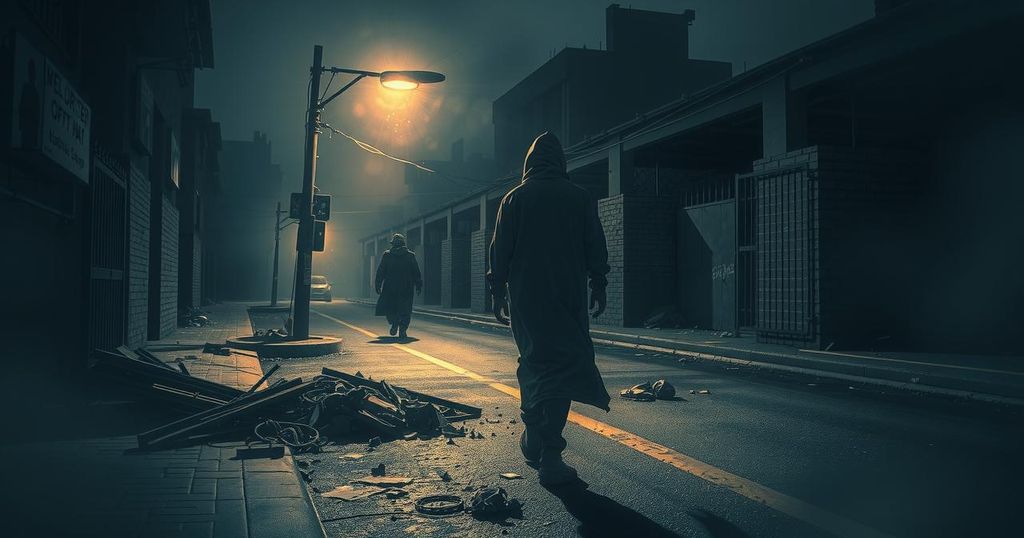In response to violent attacks on Sudanese nationals, South Sudan’s police chief has enacted a curfew from 6 PM to 6 AM. Clashes resulted in three deaths and additional injuries, with multiple Sudanese-owned businesses targeted. Amid rising unrest, police are increasing protection for Sudanese traders while South Sudan faces growing tensions due to humanitarian issues stemming from Sudan’s ongoing conflict.
Following a series of violent reprisals against Sudanese residents and their properties, the police chief of South Sudan has imposed a nighttime curfew aimed at restoring order. Reports indicate that three individuals have lost their lives, while seven others sustained injuries during clashes with law enforcement in Juba and Aweil, with their identities not yet disclosed. In Aweil, properties belonging to Sudanese nationals were also set ablaze by assailants.
The curfew, effective from 6 PM to 6 AM local time, is intended “to prevent any violations of public and private property,” according to Insp. Gen. Abraham Manyuat Peter. Additionally, police successfully extracted 45 Sudanese traders in Juba, who are currently under police protection at a local station. This situation arises as more Sudanese seek refuge in South Sudan amid escalating conflicts in Sudan, which has devolved into a humanitarian crisis affecting approximately 25 million people in need of assistance.
Recent reports and footage revealing alleged abuses by Sudanese soldiers against South Sudanese civilians have incited anger and a desire for retribution among the populace. This was highlighted by widespread youth-led attacks on Sudanese-owned businesses in various areas, especially in Juba. Security forces have responded with live ammunition to calm the unrest, which included running clashes on main streets.
Essential services have been significantly disrupted; shops and eateries in Juba’s largest market, Konyo Konyo, have ceased operations amid rising tensions. As a result, food prices, such as bread, have surged by up to 17% due to the economic fallout. Law enforcement continues to monitor the streets closely, with reports indicating that numerous police officers are dispatched to ensure the safety of Sudanese citizens and their enterprises in the impacted districts.
Youths have also reportedly engaged in violent protests in other regions, such as Tonj, though these claims remain unverified. Eyewitness accounts in key cities suggest a widespread unrest, marked by looting attempts against Sudanese-owned shops. As public sentiment swells in reaction to both the situation in Sudan and the incidents in South Sudan, a palpable tension persists that authorities are attempting to mitigate, but stability remains elusive.
The backdrop of these recent events stems from long-standing ethnic tensions in the region, particularly exacerbated by the civil strife in Sudan which has intensified since April 2023. Following South Sudan’s independence from Sudan in 2011, relations between various ethnic groups have remained fraught. The influx of Sudanese refugees fleeing the ongoing conflict has added complexity to social dynamics in South Sudan, contributing to heightened tensions leading to violent incidents such as the recent attacks on Sudanese individuals and properties.
In conclusion, the situation in South Sudan remains precarious and complex due to ethnic tensions, fueled by the ongoing conflict in Sudan. The enforcement of a curfew reflects governmental attempts to restore order in the face of violent reprisals against Sudanese nationals. As the humanitarian crisis in Sudan deepens, the implications for South Sudan will necessitate careful management and support for both local and refugee populations.
Original Source: www.bbc.com






